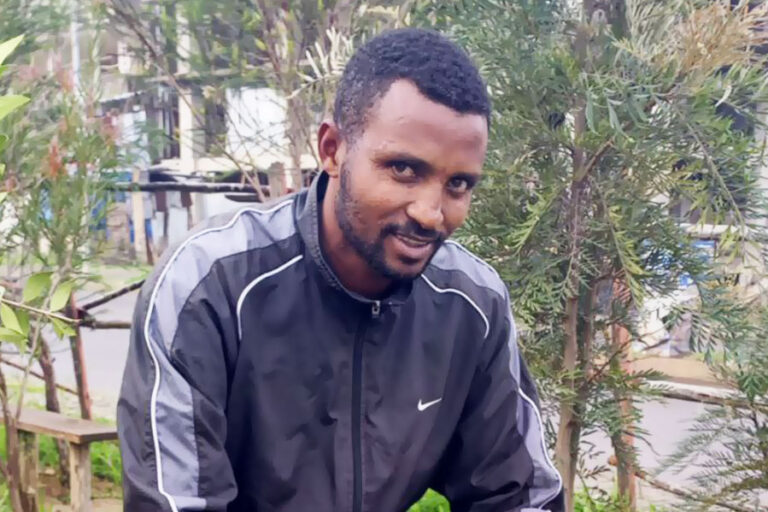By Zewde Yeraswork
Much of what is proposed in the Bill of Rights for Intra-African Trade involves the juncture between public sector and private sector, and requires public-private partnerships for the resolution of outstanding concerns. However, the current document requires clarification in the nature of these partnerships–and more emphasis on the benefits of the promotion of trade for the broader society.
The document emphasizes the opposite causal link between trade investment and broader social, political concerns. “Strengthening the role of the private sector in economic development will require creating a strong, stable and transparent legal environment for business,” it reads in the introduction (5). The problem involves the volatility of the legal environment, the fact that laws keep shifting and changing which relates to the discussion of political and institutional instability in addition to transparency. The laws must be readily available and accessible. This is a matter of communication and public information, as well as institutional development. Governments must actively publicize and update their legal codes, especially with regard to trade, in order to create a more conducive environment, while bolstering the credibility and the public confidence in their legal institutions.
The African Free Trade Agreement, according to the Bill of Rights, has come along to address glaring issues which previous intra-regional deals either caused or at the very least failed to address. Previous intra-regional trade agreements have been “ineffective in meeting the needs of businesses” (6), according to the Bill of Rights, which has a tendency to isolate the needs of businesses from those of the broader polity. The current African Free Trade Agreement must therefore serve as a corrective to the failings of previous trade agreements. There must be a recognition within the public consciousness, reflected in the campaigns of various institutions and organizations, that part of what has held Africa back economically in comparison to other regions is its inability to establish internal trade mechanisms. However, in acknowledging these failings, there must also be a recognition of the significant economic opportunities involved in the facilitation of trade In alleviating poverty, and in providing a broader tax base and the capitalization of unused or misused resources such as to prevent political corruption and institutional decay. In other words, the relationship between political and civil strife on the one hand, and trade and prosperity on the other, is mutually reinforcing, and just as improving the institutional and political conditions for trade is a requirement for prosperity and the alleviation of poverty, so too the alleviation of poverty amd the facilitation of trade can help to alleviate the problems of public sector calcification amd political and civil strife. This is all the more reason for those running the public sector to encourage and facilitate trade and entrepreneurship.
The language of the document borrows from the American Bill of Rights, replacing the concerns of people, with that of businesses, which could be misleading given that “the people” are not being replaced, but could benefit from the advancement of private sector interests, as they have, precisely, in the American context which provides inspiration for the language of the document. This BoR represents the policies “of the businesses by the businesses and for the businesses” (5). The problem with such statements is that they appear to isolate business interests and economic advancement from other aspects of the society, which stand to gain from trade. There is no conflict of interest between private sector development and overall social welfare–on the contrary. Prosperity is the best way to combat the persistent obstacles to social welfare throughout the continent. All concerned parties must be involved in drafting the policies within the Bill of Rights, but with the understanding that all would benefit from the promotion of free enterprise. The case of the United States, the principal reference point of the Bill of Rights for African traders should be marshaled as an economic model, rather than a political one.
Within the problem statement, the practical barriers to the free trade of goods and services are identified. The objective is to assess the implications and the specific provisions of current regulations (21). However, there must be an emphasis within the Bill of Rights on the fact that regulations are generally to be reduced rather than augmented in order to promote free trade, that there ought not be too much or too sudden change in these regulations, in order to create a more stable and conducive environment for commerce and Industry, and, most importantly, regulations are intended to create an atmosphere conducive to the economic growth of the signatories to intra-regional trade agreements, not to restrain or constrict that growth. The key is to re-evaluate the very intentions of the regulations, rather than focus merely on the implications or the specific provisions of those regulations.
In the section regarding security, good governance, and political stability, the Bill of Rights reads, “Participatory and inclusive government structures are required for peace and security and thus entrepreneurship, economic growth and the creation of wealth” (21) Again, prosperity reduces the need for corruption and conflict, since much of corruption and conflict is linked to the scarcity of resources, as much as the political environment is a causal factor of the economic situation, the economic situation is a causal factor for security, good governance and political stability. Governments must be consistently approached with a certain message, and ultimately convinced of that message–that the promotion of trade is ultimately in their best interests, as it creates the conditions for political and legal stability, while also benefiting, in a mutually reenforcing cycle, from those conditions.
The section regarding functioning markets and trade liberalization reads,
“Most African countries are too small to allow for significant economies of scale and thus trade policies play a key role to attract more productive investment” (22). The problem of the prevention of such economies of scale is an under-appreciated and highly significant factor in the prevention of economic advancement on the continent.
This is where the discussion of public sector stability overlaps with that of economic growth and stability. Economies of scale rely on mutual alliance and political unity, and can never emerge within the conditions of political and national division. Governments must first focus on creating political cohesion within their borders before establishing cohesion and unity on the regional level. If they are committed to intra-regional trade, then they are implicitly acknowledging the importance of first resolving their internal divisions.
Attracting productive investment through trade within Africa must become a primary goal of public-private sector partnership on the continent. It is also worth noting, as part of this Bill of Rights, that various integrated regions worldwide have emerged out of necessity, in response to the emergence of economic models for integration elsewhere, and as part of an environment of competition between the various regions. Africa cannot afford to trail further within this economic climate, given its persistent conditions of disadvantage on the global economic scene. It is a right, and a necessity even, to create effective models for economic integration within and among African economic communities, given that other regions have already established their own.
The section on Human Resource Development, Education and Capacity-building calls for African countries to take a holistic approach, balancing marketing and trade policies with national development and domestic business goals. Among some of the most insightful statements in the Bill of Rights is the claim that “education enables upward socioeconomic mobility and is a key to escaping poverty” (23), which is also the case for free enterprise. These are key long-term goals requiring the development of a long-term strategic vision. Education must always be part of this emphasis on long-term production capacity and human resource development. However, a look to PACCi’s strategic pillars may provide a frame of reference with regard to education and human resources. Gender equity is necessary as part of human resource development, as women represent a majority of Africa’s population and their advancement within the economy is necessary–that includes greater educational opportunity. In addition, if businesses want to gain the trust and the support of the broader society, including the public sector, they must consistently adhere to another of PACCi’s strategic pillars–corporate social responsibility. In this way, free enterprise can prove that the facilitation of trade and the reduction of regulations, as well as the attainment of economies of scale, will enable those businesses to then help lift other elements of the society out of poverty and instability. As much as a Bill of rights is necessary, to establish the grounds for the advancements of businesses, there must be accompanying references to the responsibilities of those enterprises within any foundational document, and there ought to be an emphasis on the overall social welfare which the facilitation of intra-regional trade ensures.
The following, in conclusion, is a list of recommendations for amending the current Bill of Rights based on the observations made above:
The promotion of trade is a net benefit to African society at large.
In addition, the promotion of intra-regional trade in particular is an absolute necessity within a global economic environment defined in large part by economic regional integration and the advent of economic communities on each continent throughout the contemporary world.
The stabilization of legal frameworks and institutions necessary for the facilitation of trade includes the reduction amd rationalization of changes to those frameworks and institutions, as well as their consistent publication by national governments.
It is the right of entrepreneurs and businesses to operate in an environment with a minimum of trade regulation, and with trade regulations that are intended as part of an environment that supports and encourages investment.
Political instability, corruption and conflict will likely be reduced by the promotion of trade and entrepreneurship, making such engagement in trade and entrepreneurship a fundamental right, rather than a matter of material self-interest.
Social amd political cohesion and unification, and the reduction of internal division and the creation of intra-regional economic communities is necessary for the attainment of economies of scale.
Education, gender equality, and corporate social responsibility are all broader social values which are consistent with, and mutually necessary for, the achievement of an environment conducive to intra-regional trade on the continent.
Zewde Yeraswork is Communications Director at PACCi and can be reached at zdyeraswork@gmail.com






